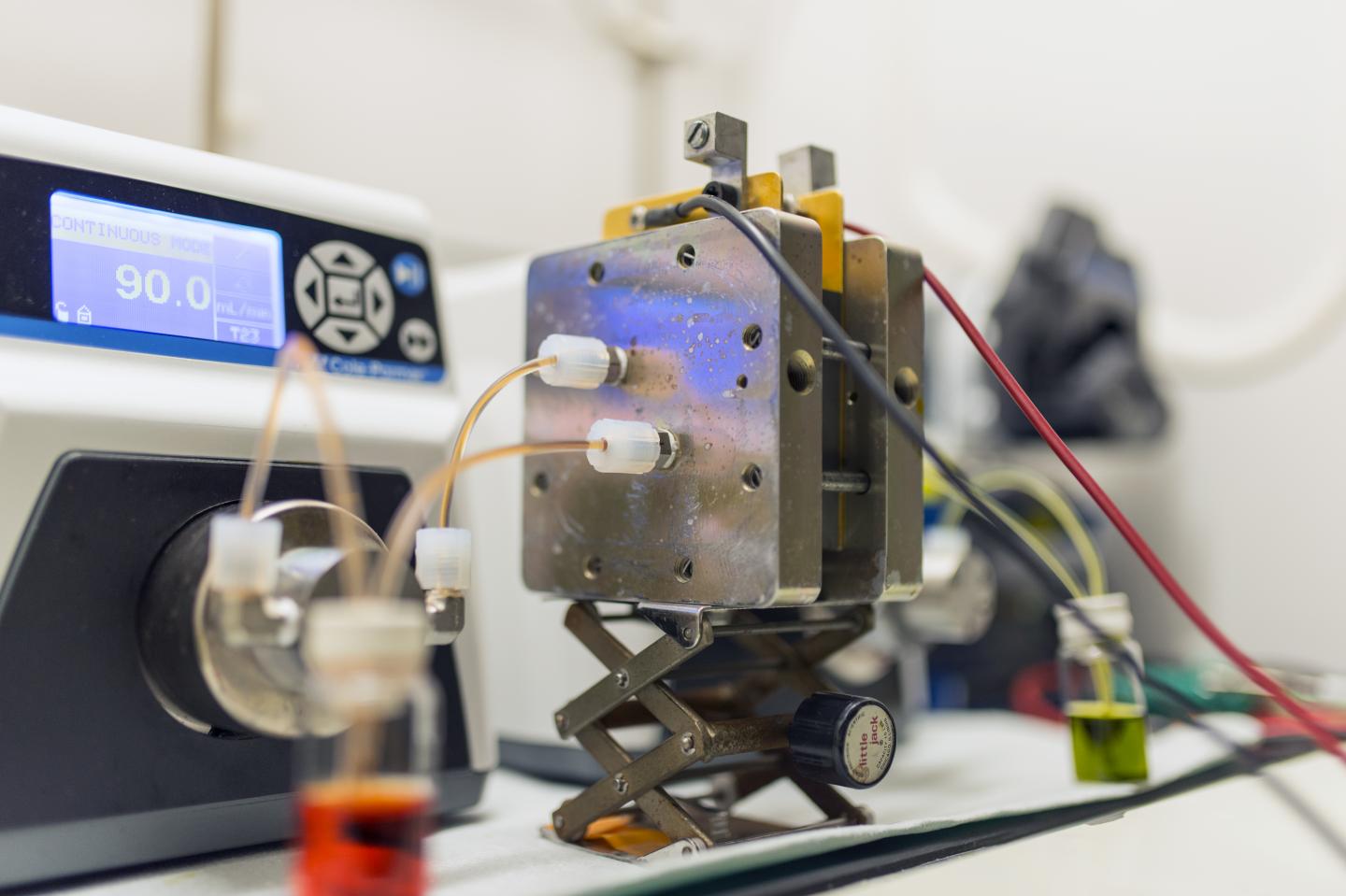
A new class of high-performing organic molecules, inspired by vitamin B2, that can safely store electricity from intermittent energy sources like solar and wind power in flaw batteries, like the one above. (Credit: Kaixiang Lin/Harvard University)
A daily vitamin supplement may have unleashed a new era in battery technology.
Harvard researchers made a few adjustments to the original molecule of riboflavin, a vitamin B molecule associated with transforming carbohydrates into fuel for our bodies, explained Engadget.
The goal was to find a molecule that could lay the groundwork for a safe, cheap way to manufacture a flow battery capable of storing electricity from irregular sources like solar and wind.
Previously, the scientists explored the potency of quinones and a food additive called ferrocyanide in their battery research. Results yielded a non-toxic, noncorrosive battery, but the team wanted to see if there were other organic molecules that had the same versatility, according to the Harvard Gazette.
“They have high stability and solubility and provide high-battery voltage and storage capacity. Because vitamins are remarkably easy to make, this molecule could be manufactured on a large scale at a very low cost,” Michael Aziz, Ph.D., a professor of Materials and Energy Technologies at Harvard and a co-author of this study, said in a statement.
Flow batteries operate by storing energy in solutions based in external tanks, noted Engadget, so this high-capacity molecule could lead to larger tanks, therefore storing a higher amount of energy resulting in a higher output of energy.
The team’s next steps will focus on further studying these vitamin B molecules as well as the quinones alternative.
You can watch a video below explaining the purpose of flow batteries. The study was published in the journal Nature Energy.




